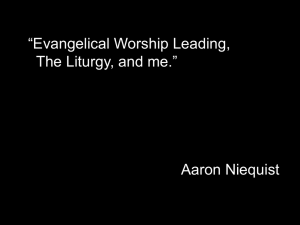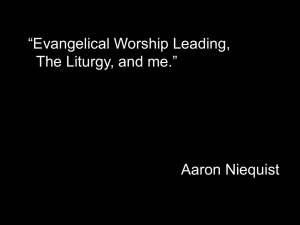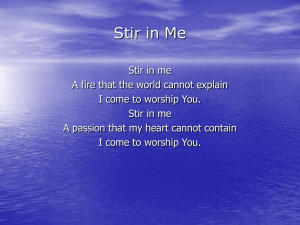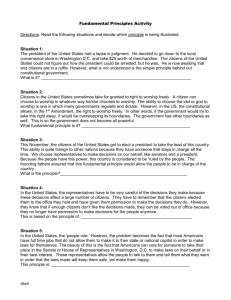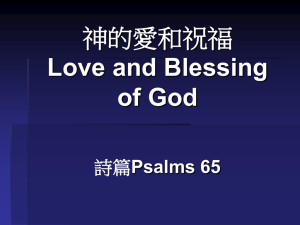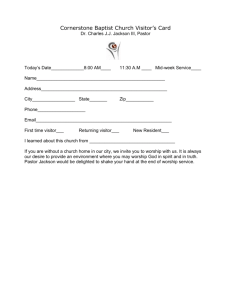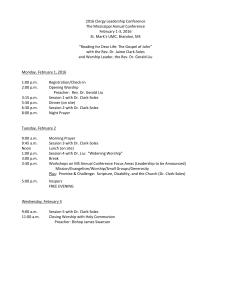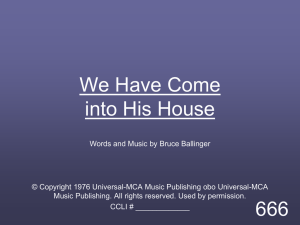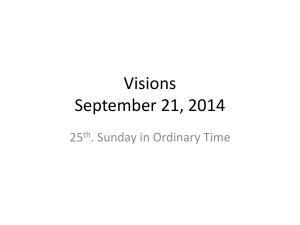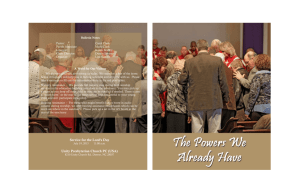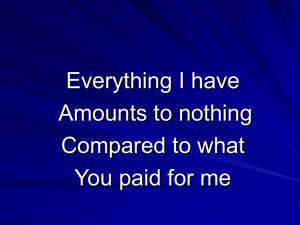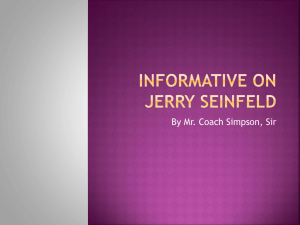peer mentoring
advertisement
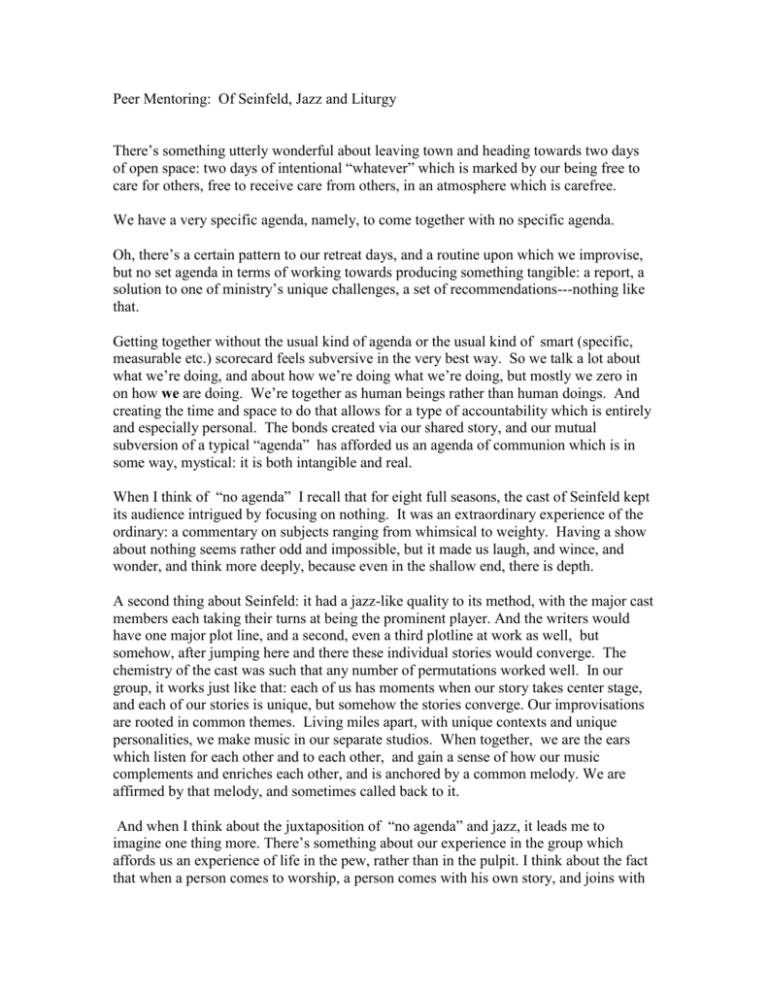
Peer Mentoring: Of Seinfeld, Jazz and Liturgy There’s something utterly wonderful about leaving town and heading towards two days of open space: two days of intentional “whatever” which is marked by our being free to care for others, free to receive care from others, in an atmosphere which is carefree. We have a very specific agenda, namely, to come together with no specific agenda. Oh, there’s a certain pattern to our retreat days, and a routine upon which we improvise, but no set agenda in terms of working towards producing something tangible: a report, a solution to one of ministry’s unique challenges, a set of recommendations---nothing like that. Getting together without the usual kind of agenda or the usual kind of smart (specific, measurable etc.) scorecard feels subversive in the very best way. So we talk a lot about what we’re doing, and about how we’re doing what we’re doing, but mostly we zero in on how we are doing. We’re together as human beings rather than human doings. And creating the time and space to do that allows for a type of accountability which is entirely and especially personal. The bonds created via our shared story, and our mutual subversion of a typical “agenda” has afforded us an agenda of communion which is in some way, mystical: it is both intangible and real. When I think of “no agenda” I recall that for eight full seasons, the cast of Seinfeld kept its audience intrigued by focusing on nothing. It was an extraordinary experience of the ordinary: a commentary on subjects ranging from whimsical to weighty. Having a show about nothing seems rather odd and impossible, but it made us laugh, and wince, and wonder, and think more deeply, because even in the shallow end, there is depth. A second thing about Seinfeld: it had a jazz-like quality to its method, with the major cast members each taking their turns at being the prominent player. And the writers would have one major plot line, and a second, even a third plotline at work as well, but somehow, after jumping here and there these individual stories would converge. The chemistry of the cast was such that any number of permutations worked well. In our group, it works just like that: each of us has moments when our story takes center stage, and each of our stories is unique, but somehow the stories converge. Our improvisations are rooted in common themes. Living miles apart, with unique contexts and unique personalities, we make music in our separate studios. When together, we are the ears which listen for each other and to each other, and gain a sense of how our music complements and enriches each other, and is anchored by a common melody. We are affirmed by that melody, and sometimes called back to it. And when I think about the juxtaposition of “no agenda” and jazz, it leads me to imagine one thing more. There’s something about our experience in the group which affords us an experience of life in the pew, rather than in the pulpit. I think about the fact that when a person comes to worship, a person comes with his own story, and joins with a company of others who have their own stories, and together we enter into the framework of worship. There is a liturgy which invites us into the experience of the grand Scripture story. But here’s the thing: worshipers never know exactly what the hour will bring. Sometimes the stories of different individuals will take prominence and give shape to the worship of the group. There will be special thanksgivings and pointed laments. And there is always the question of the preaching: who knows exactly how the stories of our lives will connect to and gain a sense of being anchored in the narrative which speaks good news? Who knows precisely what the preacher will say? When we worship from the vantage of the pulpit, we enter the time and space of worship with some sense of what will unfold; when we worship from the vantage of the pew, there is a greater degree of the unknown, of entering an agenda which we do not control. I view our gathering times as a group as a kind of pew experience: entering with anticipation, with my self, and not knowing how our individual stories will intersect, not knowing how our music will play out precisely, but trusting that it will be beautiful and poignant and enriching and painful and good. We’re together in the presence of God. We’ll cry. We’ll laugh hysterically. We’ll know and be known. It’s not that we don’t have an agenda at all. Having no agenda is an agenda. But it’s a unique agenda, something like a liturgy frame which we enter, and then together, the reality of our communion renews, invigorates, shapes, inspires thankfulness to God, for each other, and for doing our work well in the places to which we return. This is what trying not to achieve anything allows us to achieve. Grace has a way of subverting the usual measures of cause and effect. Comes the question, “What do you do in that group?” Comes the answer, “Nothing. Together we work hard at doing nothing. And we accomplish more than you can imagine.”
